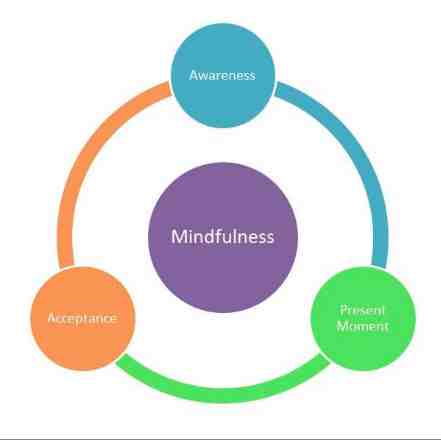|
Mindfulness Based Cognitive TherapyReversing The Downward Spiral
Mindfulness Based Cognitive Therapy (MBCT) is a psychological therapy which blends mindfulness techniques with features of cognitive therapy. It was founded by Zindel Segal, Mark Williams and John Teasdale of University of Oxford Dept. of Psychiatry, Warneford Hospital, Oxford, UK.
The Basis and Purpose Of Mindfulness Based Cognitive Behaviour Therapy
Learning how to step out of automatic reactions to thoughts and feelings The purpose of MBCT is to develop a "freedom from the tendency to get drawn into automatic reactions to thoughts, feelings, and events". It involves accepting thoughts and feelings without judgement rather than trying to push them out of consciousness, with a goal of correcting cognitive distortions. The basis of MBCT "Mindfulness-based cognitive therapy (MBCT) is an approach to psychotherapy that uses cognitive behavioral therapy (CBT) methods in collaboration with mindfulness meditative practices and similar psychological strategies. It was originally created to be a relapse-prevention treatment for individuals with major depressive disorder (MDD)." Source - Wikipedia When we are vulnerable to depression, we lose touch with what is going on around us, and tend to develop tunnel vision. Very specifically and critically - we do not notice the moment when a spiral of low mood is starting. Mindfulness practice helps us to see more clearly the patterns of the mind; and to learn how recognise when our mood is beginning to go down. This means we can ‘nip it in the bud’ much earlier than before. Mindfulness practise teaches us a way in which we can get back in touch with the experience of being alive. Shifting mental gears and halting the escalation of negative thoughts Mindfulness helps to halt the escalation of negative thoughts and teaches us to focus on the present moment, rather than reliving the past or pre-living the future.
Mindfulness
What Matters Is Not The Content Of Your Thoughts But Your Relationship With Your Thoughts In dealing with our thoughts, I have found that there are four stages: awareness of our thoughts; understanding our thoughts; accepting our thoughts; and, living with our thoughts. I have addressed the first three points in You Are Not Your Thoughts. This article covers a lot of ground and I have included many links to third party resources and other articles that I have written that will provide a more holistic understanding of the subject. All of this material is written from direct personal experience. I encourage you to read this material, and also the follow up article which addresses the subject of Living With Your Thoughts.
Why Mindfulness Based Cognitive Therapy Works
Return from "Mindfulness Based Cognitive Therapy" to Techniques For Managing Stress
|
